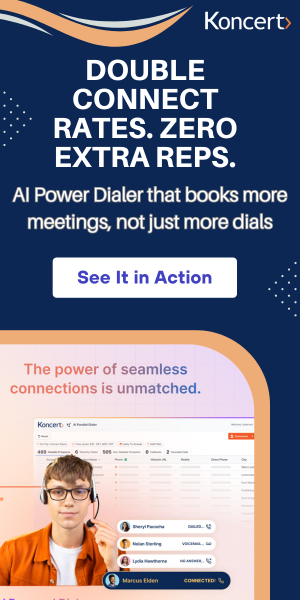4 min read
5 Best Practices For Your Lead Management System
By: Joe Cronin on Jul 11, 2018 2:50:00 PM

A lead management system refers to software that provides a business with the customer relationship management, or CRM, features that the company needs. Lead management systems help salespeople work more efficiently, they often form the backbone of successful sales organizations.
This list highlights some basic facts about lead management systems:
- Lead management software processes a database of sales leads.
- The software qualifies leads by evaluating, segmenting, and nurturing them.
- Benefits of these lead management tools include relieving sales reps from time-consuming tasks, enabling efficient workflows, and helping the sales team make better decisions.
Five Best Practices for Using a Lead Management System
Naturally, the quality of the information, sales process and, of course, the lead management system will impact results. With that in mind, consider five ways to get a lead management system to work better for you.
1. Map Your Sales Process
You need to map out how leads get documented as they travel through various stages in your sales process. Before you can expect good results from any lead management software, you should start by defining how leads will get followed up with as they come in from a web form, phone call, abandoned shopping cart, and so on. As time passes, you may change your map, but you need to document your current vision of an ideal sales process before you begin.
2. Track Lead Sources for Productivity
You need to understand which sources deliver the most productive sales leads. For example, you might attract leads online by offering an informational white paper or video that your target market should find valuable. You can protect that content behind a web form that potential customers complete. The information in that form then becomes a sales lead record in your lead management system.
Just the fact that you managed to attract potential customers to the page and have gotten them to fill out the form tells you that part of your sales pipeline worked. Still, you need to ensure that you're attracting the types of sales leads that convert into customers. You'll want to keep tracking your leads even after they make a purchase. Understanding their needs before and after conversion will allow you to apply those learnings to other leads, and speed up the sales cycle.
3. Track Anonymous Users
Certainly, some visitors will find your website and never fill out a form. You can still capture information about these people that may provide you with valuable insights. For instance, you may map their IP address to a certain organization or geographic area.
You can use this information as part of your lead pipeline process because you can tell if the initial part of your sales funnel is getting the right people to the page or not. If you're attracting visitors but not leads, then you know that you may either need to tweak the message of ads and social posts or the page with the form. In any case, you can learn a lot even from anonymous visitors.
4. Develop Data Quality and Reduce Duplicates
Most sales organizations suffer from data quality problems that might include duplication or simply wrong information. According to the Marketing Automation blog, bad data makes up 25 percent of the entries in an average sales database, and 60 percent of companies would get unreliable data quality scores.
By making small changes to improve data quality, you’ll:
- Make better decisions: If your sales team relies upon average quality data, you only have what you need to make a good decision 75 percent of the time, no matter what you do.
- Increase productivity: Your sales team won't waste time working leads with bad phone numbers or email addresses.
- Reduce mailing and other distribution costs: Why waste money sending and tracking mailers that go to the wrong place?
- Improve customer relationships: You can only understand what your customers and potential customers want (or don't want) when you keep accurate information about them.
- Market better: In today's omnichannel marketing environment, poor sales data leads to poor marketing decisions.
5. Use the Power of the Lead Marketing System
A high-quality lead marketing system doesn't just contain a database filled with sales leads. It also helps you track and evaluate a variety of lead attributes, including demographic and behavioral information. You can work with your lead management software to use these attributes to define what makes a marketing qualified lead, sales qualified lead, or unqualified lead. Once you use the system to evaluate the data, then you build the scoring criteria which then can automatically score leads.
Tools like ConnectLeader's Adaptilytics relies on predictive data intelligence to score and prioritize leads in the database. This gives sales reps the chance to spend more time having conversations with qualified prospects and increases their opportunities to close sales.
Final thoughts on lead management
None of this works, let alone improves, without closely monitoring the performance of every aspect of your lead generation and lead management process. When used correctly, a lead management system will show the impact of marketing activities in the sales pipeline and help to invest time on the hottest leads so that less time is wasted on initiatives that do not return and leads that do not convert.
To elevate your lead nurture process read our blog, How to Get More Out of Agent Assisted Dialing.
Related Posts
10 min read
High-Quality Outreach - Why Koncert's ZigZag Dialing® Replaces Call Blasting
Dec 12, 2025 by Koncert Marketing
13 min read
7 Outbound Sales Trends for 2026 - AI, Latency, & Max Connect
Dec 4, 2025 by Koncert Marketing


